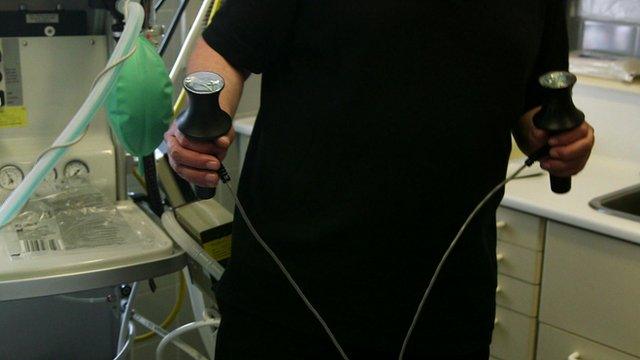Concerns over ECT treatment at mental health trust
- Published
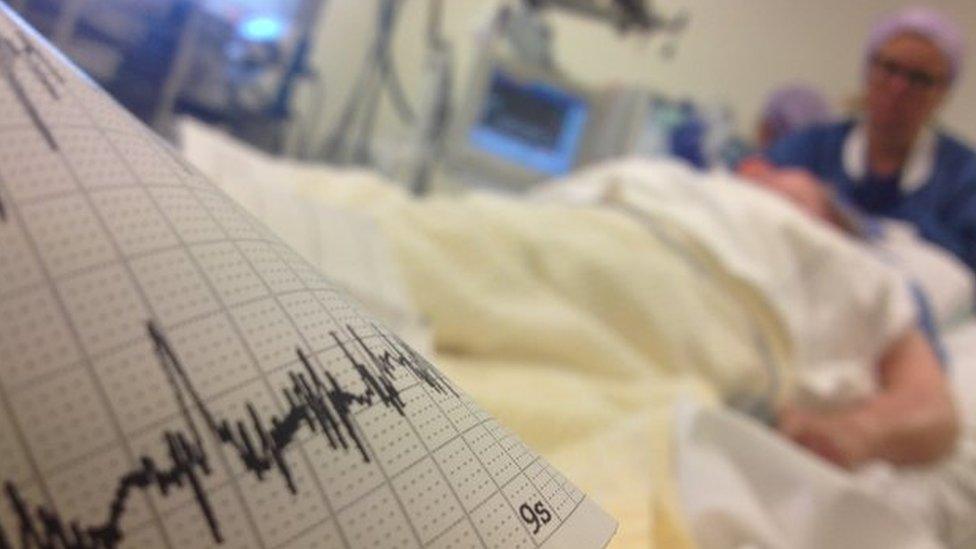
Avon and Wiltshire Mental Health Partnership gave ECT to 169 patients - triple the national average - in 2019
An NHS Trust used electroconvulsive therapy (ECT) three times more than the national average on "a whim rather than science", a report said.
ECT involves passing electric currents through a patient's brain to cause seizures to treat severe depression.
A 2019 audit shows Avon and Wiltshire Mental Health Partnership (AWP) gave ECT to 169 patients.
It said it had a "good provision of accredited clinics" which "may mean" it provides more sessions.
Psychologists campaigning for better regulation of the practice sent a Freedom of Information (FOI) request to all 56 NHS Trusts.
Across the 37 trusts which responded, 1,964 people underwent the treatment in 2019 - giving a average of 53.
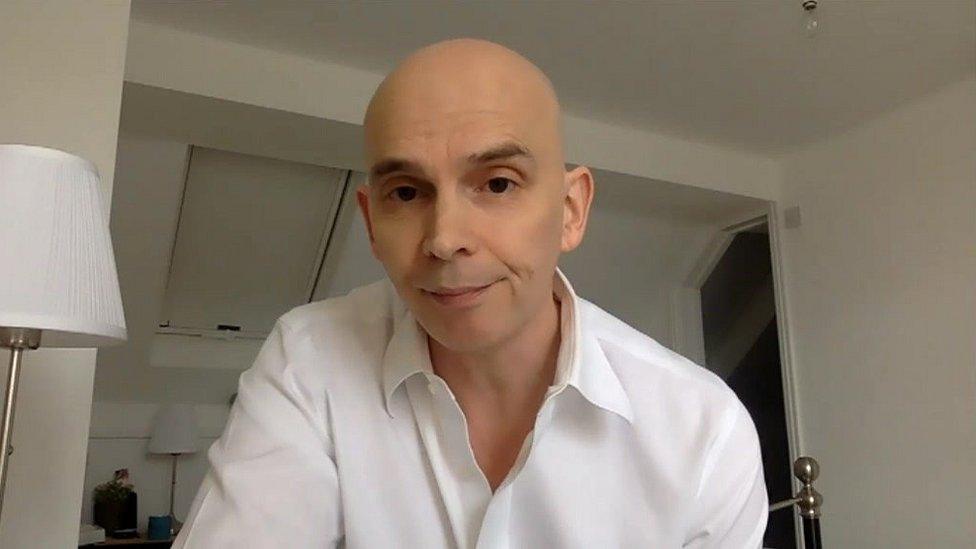
Dr Harrop said any effects from ECT is "almost certainly placebo"
Dr Chris Harrop, the report's co-author, said they were "surprised" by the "large discrepancy" between trusts.
"Some barely used them but AWP were using them way more than any other trust in the country," he said.
"If it was following evidence-based medicine it would be the same everywhere but it's not and we suspect it's more due to clinicians' whims more than any science behind it."
The FOI also revealed that AWP, along with three other trusts, had given ECT to a child, under the age of 18.
The trust said the procedure could be "highly effective" for people with "treatment resistant depression and severe bipolar disorder".
But Dr Harrop said: "The downsides of ECT are that there's a high instance of memory loss and the effect is almost certainly placebo."
"And it [ECT] just doesn't seem to work."
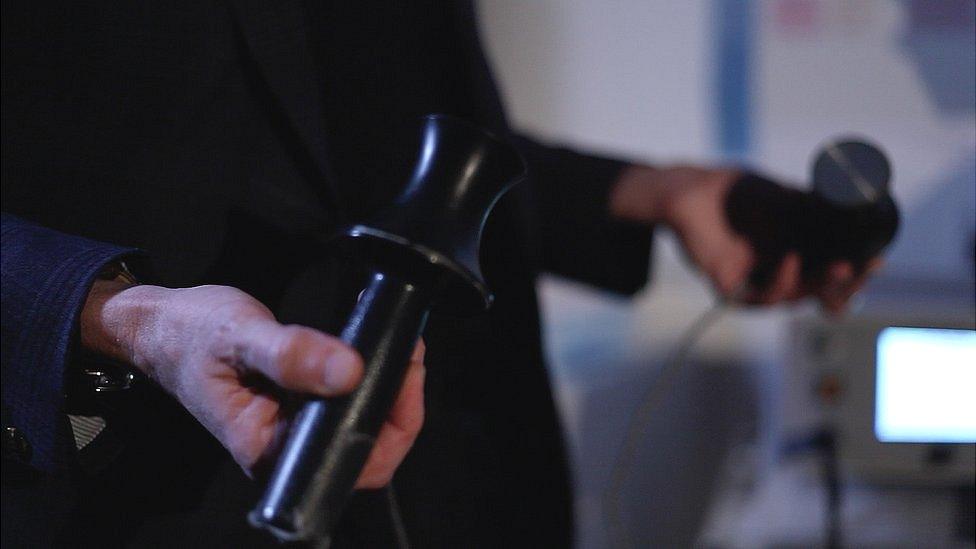
The procedure "can be lifesaving", Sarah Constantine, medical director of AWP, said
Sarah Constantine, AWP medical director, said: "ECT is often used when all other treatments and therapy have been explored and utilised and a patient is not responding to medication.
"In some cases it can be lifesaving."
She said it had "some risks" but these were "carefully balanced" with the consequences of "not providing the treatment for severe psychiatric disorders".
The Royal College of Psychiatrists said in a survey carried out on more than 2,000 treatments two years ago that "more than two thirds of patients reported being much improved or very much improved after ECT treatment".
Related topics
- Published23 February 2014
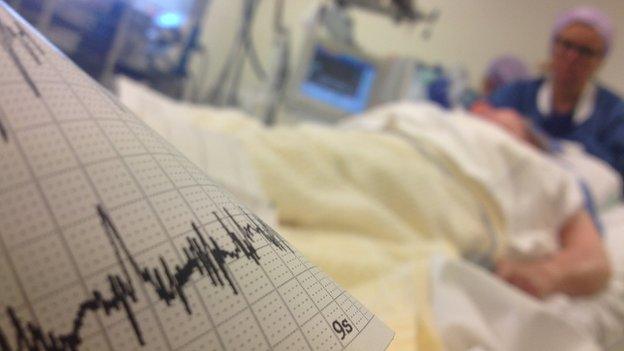
- Published3 June 2020
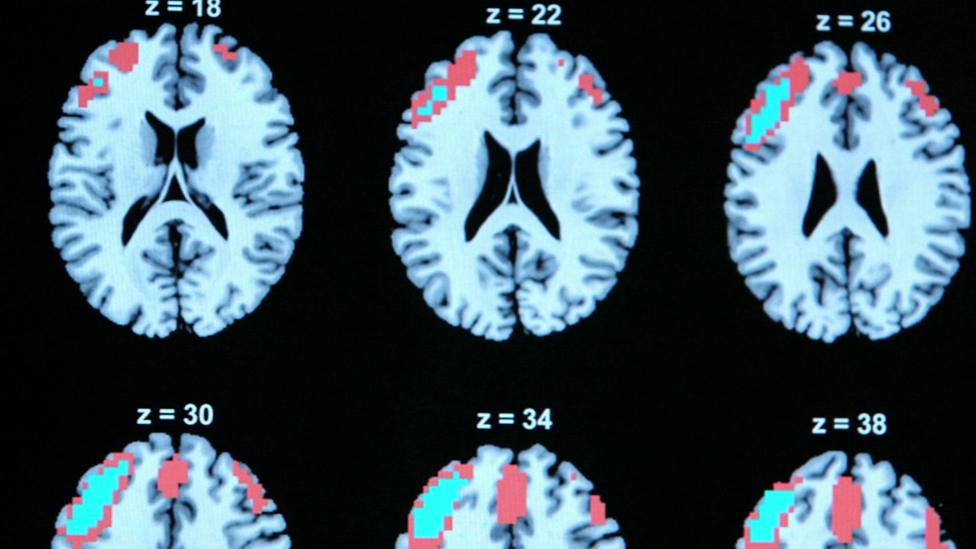
- Published19 May 2017
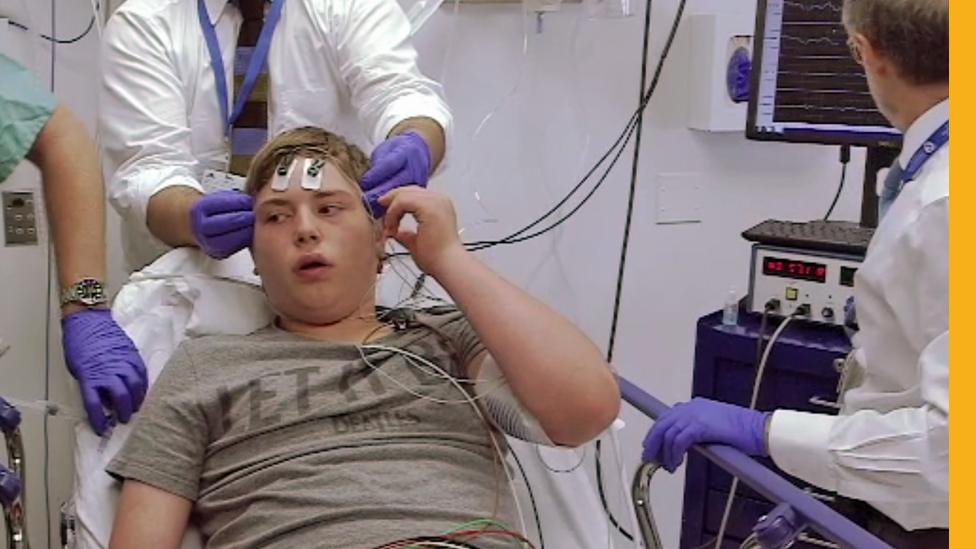
- Published18 February 2016
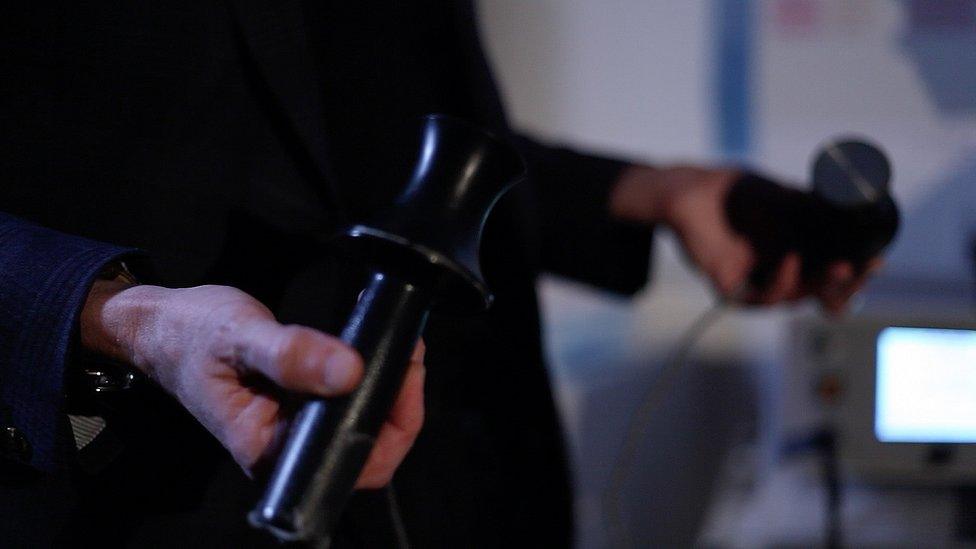
- Published25 July 2013
